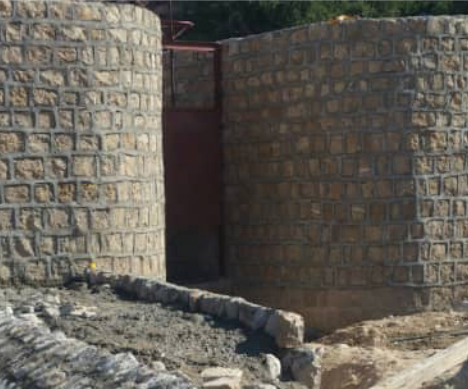The Islamic Bank For Development (IBD) provided two loans: one for the Youth Employment Program for US$25 million and one for the rural development program for US$15 million. The loans were active on july 2013, but were suspended on july 2016. On March 2017, idb reactivated this funding
Status as of December 2018.
Generation of work opportunities for YOUTH to learn new skills that would transform them from unskilled to skilled labor, is one of the key objectives the PWP has sought to realize from the outset. In implementing subprojects in sectors such agriculture and rural access road paving to support the rural agriculture economy – which covers more than 70% of the country’s population - the PWP has succeeded in leaving a tangible impact in target communities in this area. Many of those who have worked in subprojects under this funding have graduated to become skilled workers. Qanaf ali fare’a is a prime example: he is now very skilled in masonry work and paving, graduating from a day worker who used to port stones. Qanaf and thousands of young people like him - who were employed in activities carried out during the implementation of subprojects in these areas - have gained valuable new skills.
Indicators
216 Subprojects have been contracted under the YOUTH support program at a cost of nearly US$20.4 Million. 101 Of those subprojects have been completed at a total cost of US$9.6 Million, generating close to 275 thousand work day, with 148,000 people beneficiaries. The program also includes a number of other activities implemented through community contracts - a new scheme introduced recently by the PWP. 115 Subprojects are still ongoing at a total cost of US$10.7 Million.

Rural Development
The PWP, under the Rural Development Program, is seeking to support the agriculture sector, which is the main source of livelihood for rural communities. Through the completed subprojects, the PWP has succeeded in improving living conditions for farmers and their households and contributed to improving the food security situation and stability in those areas, which have contributed to reducing rural to urban migration.
118 subprojects have been contracted under the Rural Development Program at a cost of US$12.6 million. 82 subprojects have been completed at a cost of US$8.4 million generating nearly 157,000 work day, with 295,000 beneficiaries. The remaining 36 subprojects, which are still under implementation, will cost about US$3.6 million.





